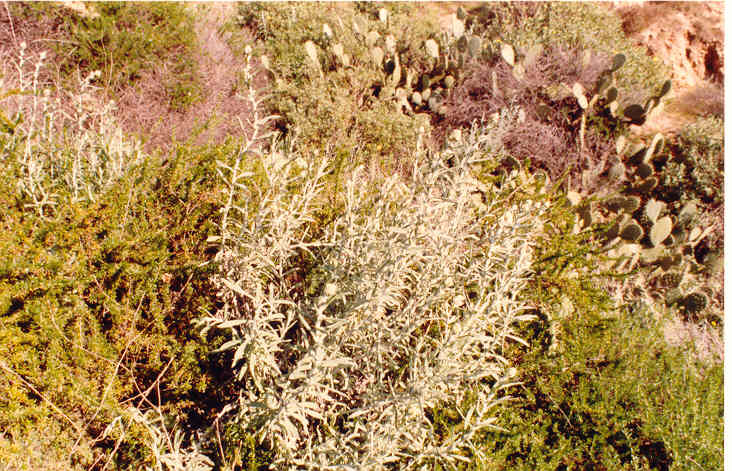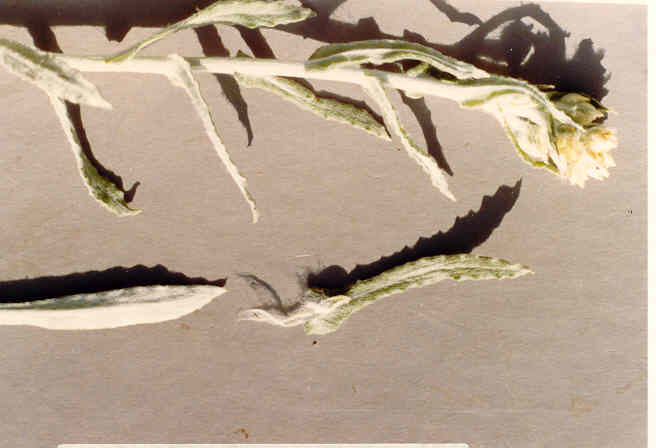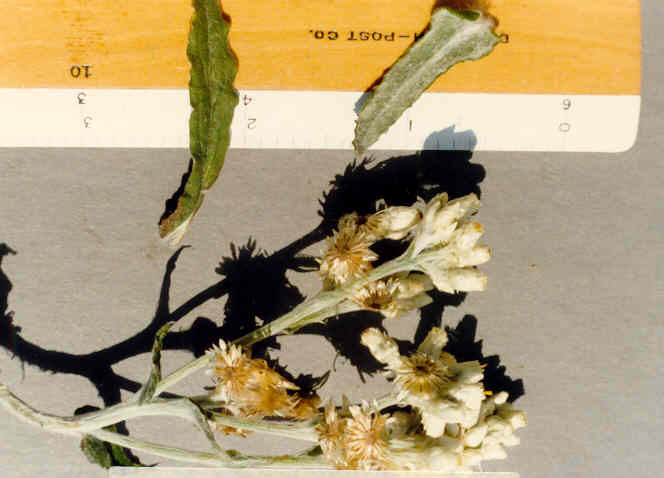
Gnaphalium bicolor Bioletti
Asteraceae (Sunflower Family)
Native
 |
Gnaphalium bicolor BiolettiAsteraceae (Sunflower Family)Native
CudweedBicolored Cudweed |
January Photo
Plant Characteristics:
Biennial or perennial, with several stout branched stems 4-9 dm. high,
very leafy, white-tomentose, sweet or pungently scented; lvs. glabrate and
becoming green above, white-tomentose beneath, lance-oblong, 2-7 cm. long,
closely sessile by a broad auriculate base, +/- crisped along the margins;
cauline lvs. 4-16 mm. wide, clasping; heads in rather loose corymbs; invol.
campanulate, ca. 6 mm. high, ovoid to +/- bell shaped; phyllaries whitish or
pale yellow, shiny, tips obtuse to acute, the outer ovate, glabrous (except the
loosely tomentose base), the inner narrow-oblong; pappus bristles free.
Habitat:
Common in dry open places below 2500 ft.; Coastal Sage Scrub, Chaparral;
cismontane, from L. Calif. to cent. Calif.; San Clemente, Santa Catalina, Santa
Rosa and Santa Cruz Ids. Jan.-May
Name:
Greek, Gnaphalium, a lock of
wool, these plants floccose-woolly. (Munz,
Flora So. Calif. 169).
Latin, bi, two and color,
hue. (Jaeger 36,63). Probably referring to the two colored leaves, green above,
white below as they age.
General:
Occasional in the study area. Photographed
on the Castaway's Bluffs and on the bluffs between 23rd Street and the Delhi
Ditch. (my comments).
Delfina Cuero, a Kumeyaay or Southern Diegueno Indian, made the following
comment about Gnaphalium bicolor in
her autobiography: "Boiled and
used as poultice on sores". (Shipek
91). Over
100 species, widely distributed. (Munz,
Flora So. Calif. 169).
Text Ref:
Hickman, Ed. 271; Munz, Calif.
Flora 1260; Munz, Flora So. Calif.
170; Roberts 11.
Photo Ref:
Jan 4 84 # 4; April 2 87 # 4A,5A,6A.
Identity: by R. De Ruff, confirmed by F. Roberts.
First Found: January 1984.
Computer Ref: Plant Data 172.
Have plant specimen.
Last edit 7/30/05.
 |
 |
January Photo April Photo